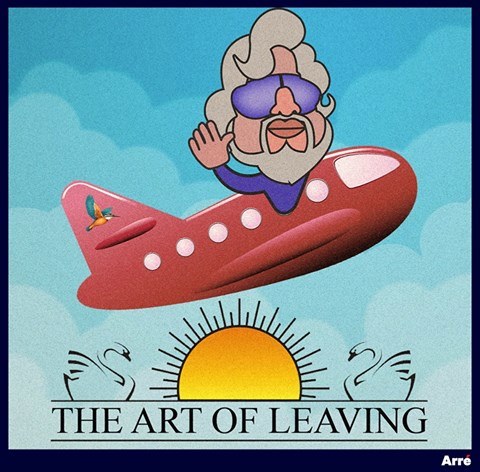The Death Of Two Airlines
By B.F. Firos
10 March, 2016
Countercurrents.org

Indian journalists used to suffer from an OCD (Obsessive Compulsive Disorder) of a peculiar kind as they religiously prefixed the adjective ‘flamboyant’ to refer to Vijay Mallya. The ‘flamboyant’ fixation and occasional comparison to Richard Branson remained at its feverish pinnacle even after his Kingfisher Airlines ran aground and employees staged public protests demanding their unpaid salaries. As banks started baying for his blood, we saw the overly used ‘flamboyant’ getting replaced, though much reluctance, with words like ‘beleaguered.’
Mallya became Indian media’s popular corporate poster boy after he brought to India Tipu Sultan’s sword from Britain twelve years ago. Now he has escaped to the same Britain with the street-smart guile of a fly-by-night-operator. It had all the natural ingredients of a Jeffrey Archer novel: corporate conspiracy, bikini-clad damsels, and a final Bond-like escape. Sir Arthur Conan Doyle would have named it A Scandal of Bohemian! But then, his sleuth Sherlock Holmes’ science of deduction and art of intuition wouldn’t just be enough to locate the now-elusive, has-been prince. Holmes might just get lucky if he gets one or two tips from the flamboyant-crazy journalists on Mallya’s whereabouts.
We saw how a weak-kneed state standing helplessly before the tantrums of Mallya who beguiled the whole country with his corporate melodrama; with jargons such as debt restructuring, local investors, and equity being thrown in for good taste. And he went about with hubris, embellished by his Formula 1 and IPL adventures, as out-of-job pilots and other airline staff looked at the sky for their salaries. The other day a few disgruntled staff protested outside his Mumbai residence. They didn’t know that they were unwittingly singing songs of farewell to Mallya.
The near-void caused by Kingfisher’s exit was eventually filled by a couple of full-scale as well as no-frills carriers. Two decades ago, the country’s aviation sector witnessed a similar gap with the exit of East West Airlines, though on account of entirely different reasons. The meteoric rise and melancholic fall of East West, promoted by the Wahid brothers from Kerala, remains etched in India’s aviation history with the avant-garde entrepreneurship of its CMD Thakiyudeen Wahid. If Kingfisher died because of the corporate skullduggery by its owner Mallya, East West died after its promoter Thakiyudeen succumbed to a spray of machine gun bullets.
The East West’s was a rags-to-rich filmy story, but with a tragic real-life climax. What started as a modest manpower recruiting agency in Bombay blossomed into the country’s first private airline to touch skies in early 1992 after India launched its open-sky policy. It was a daring move: to test waters in a sector dominated by the government carrier. In its heady days, when Indian Airlines pilots went on strike, Indian government asked East West to fill the gap. But trying times were ahead. Just when the promoters contemplated shifting the headquarters to Chennai or Bangalore in the face of growing threats from various quarters, Thakiyudeen Wahid was shot dead outside his office in Bombay in 1995.
Post-Wahid, the airline suddenly found itself stranded in mid-air, with the pilot having gone, gasping for breath with a leadership vacuum and aircraft companies knocking at its doors. Thakiyudeen’s brothers, lacking in vision and the wherewithal to steer the troubled career, couldn’t carry forward his legacy.
East West soon disappeared, rather tragically, into thin air without trace; everything about the airline company was submerged in the din of its alleged connection with Dawood Ibrahim. The politicians who had hitherto hobnobbed with the airline directors suddenly hid in the cocoon of the airline company’s alleged underworld link. Probably, even to talk about saving a fast-sinking airline with supposed underworld connections must have been a sacrilegious act.
The airline’s alleged underworld link is still a legally unproven charge, so is the charge that business rivalry was behind the murder. Chotta Rajan had claimed that he got Thakiyudeen killed. He was, claimed Rajan, Dawood's financier in India.
Thakiyudeen was probably not the right fit for a flamboyant tag dished out by our journalists. He was born in an ordinary family in a coastal village in Kerala; he didn’t own yachts or resorts, neither an exalted pedigree worth exhibiting. But he created history in an industry few dared to touch, so did Mallya, but for entirely wrong reasons. East West and Kingfisher were phenomena of entirely different times and contexts. However, both can form the base of a plot that would make Jeffrey Archer squirm!
(The writer is a Dubai-based journalist. [email protected])

